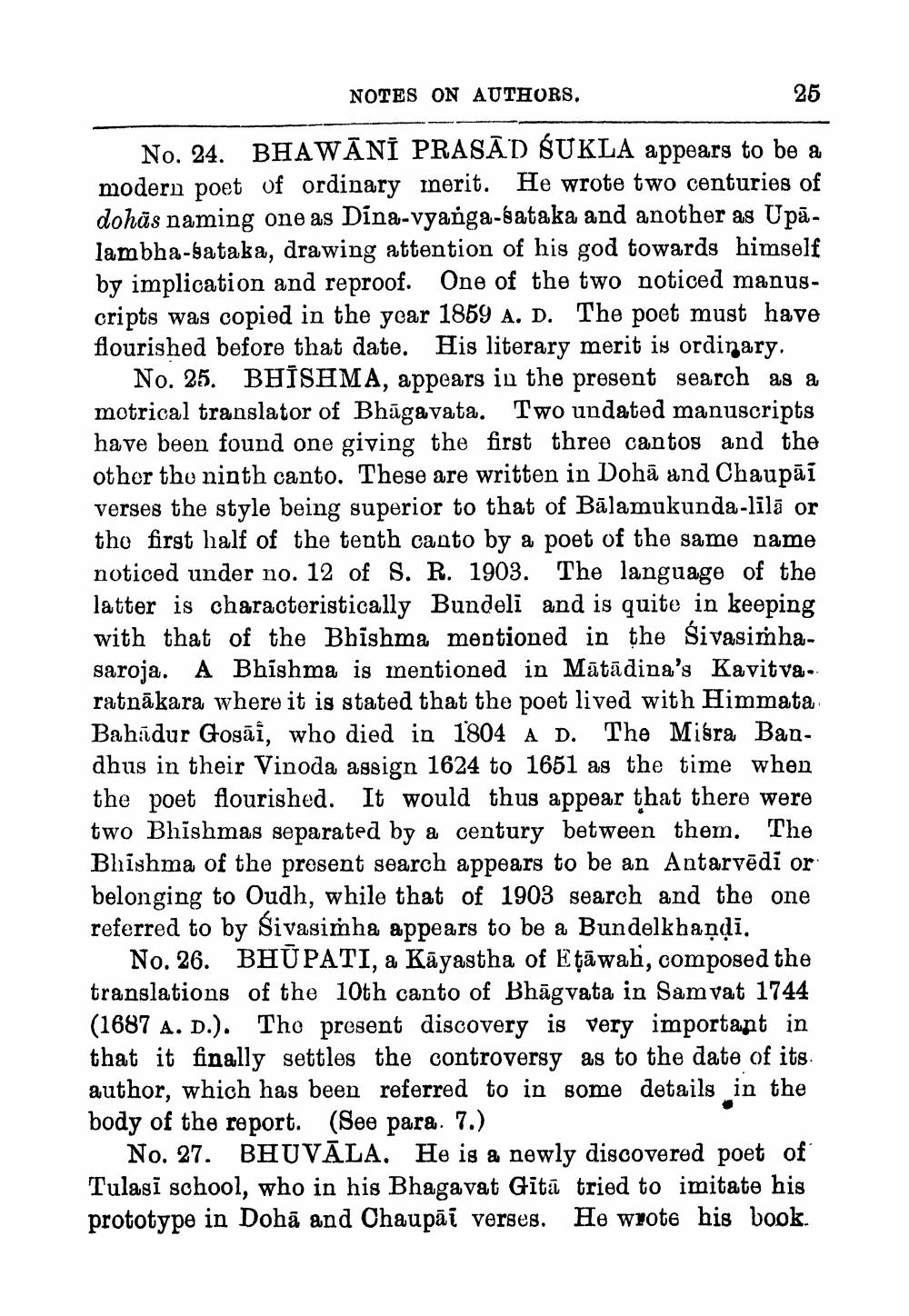________________
NOTES ON AUTHORS.
25
No. 24. BHAWĀNI PRASĀD ŠUKLA appears to be a modern poet of ordinary merit. He wrote two centuries of dohās naming one as Dina-vyanga-bataka and another as Upālambha-yataka, drawing attention of his god towards himself by implication and reproof. One of the two noticed manuscripts was copied in the year 1859 A. D. The poet must have flourished before that date. His literary merit is ordinary.
No. 25. BHISHMA, appears in the present search as a motrical translator of Bhāgavata. Two undated manuscripts have been found one giving the first three cantos and the other the ninth canto. These are written in Dohā and Chaupāi verses the style being superior to that of Bālamukunda-līlā or tho first half of the tenth canto by a poet of the same name noticed under no. 12 of S. R. 1903. The language of the latter is characteristically Bundeli and is quite in keeping with that of the Bhishma mentioned in the Śivasimhasaroja. A Bhishma is mentioned in Mātādina's Kavitva. ratnākara where it is stated that the poet lived with Himmata Bahadur Gosāî, who died in 1804 A D. The Misra Bandhus in their Vinoda assign 1624 to 1651 as the time when the poet flourished. It would thus appear that there were two Bhishmas separated by a century between them. The Bhishma of the present search appears to be an Antarvēdi or belonging to Oudh, while that of 1903 search and the one referred to by Sivasimha appears to be a Bundelkhandi.
No. 26. BHŪPATI, a Kāyastha of Eţāwah, composed the translations of the 10th canto of Bhāgvata in Samvat 1744 (1687 A. D.). The present discovery is very important in that it finally settles the controversy as to the date of its author, which has been referred to in some details in the body of the report. (See para. 7.)
No. 27. BHUVĀLA. He is a newly discovered poet of Tulasī school, who in his Bhagavat Gītā tried to imitate his prototype in Dobā and Chaupās verses. He wrote his book.




